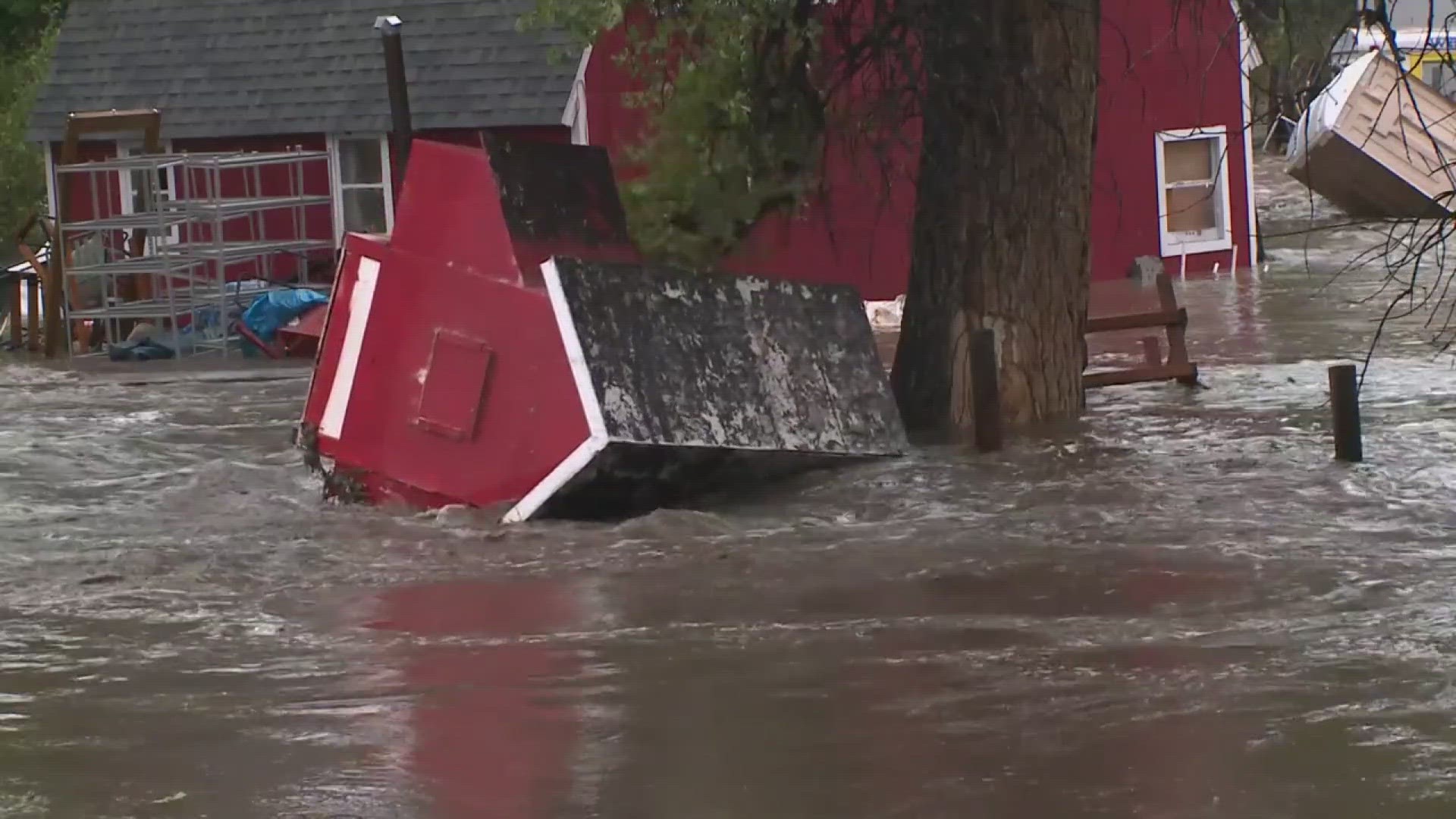LYONS, Colo. — This week marks 10 years since destructive and deadly floods swept through the Front Range. Nine Coloradans were killed by the floodwaters. More than 2,000 homes were destroyed, and 26,000 were damaged.
Looking back
During the floods, 9NEWS found stories of loss, heartbreak and pain. But there were also moments of hope.
Ten years later, National Guard members shared stories of helping get people to safety during the floods.
Sunday, residents of Lyons gathered to remember the floods and celebrate their resilience.
The Lyons High School Lions football team came back strong after the devastating floods, as this 9NEWS story from 2014 shows.
Jamestown Mayor Michael Box joined 9NEWS Tuesday to talk about the town's recovery and progress made.
Longtime Jamestown resident Louis Maurer shared his memories of the floods -- and one special cat.
Former Boulder County Sheriff Joe Pelle says they never could imagine how that night played out.
Residents of Big Thompson Canyon shared their memories from the flood.
The canyon has seen two of the deadliest and most destructive floods in Colorado history. But there's something special that keeps survivors there.
Ten years later, drone video shows how the Big Thompson Canyon has recovered.
Nancy Farmer couldn’t rebuild in the exact same spot after the flood, but she was able to rebuild within Jamestown. And it happened with a lot of help.
The impact from the floods is hard to fathom. The numbers help put into perspective one of the state's worst natural disasters.
The storm that caused the flood was extremely rare. Emergency leaders called it "biblical" at the time. What made it even more unusual was that it hit during September.
Looking ahead
One of the victims was Lyons teacher Gerry Boland. Now, his legacy lives on through a scholarship awarded to deserving Lyons High School students.
Marshall Frech moved to Boulder in 2000 to study flooding along the Front Range, and he got a firsthand look in 2013. He says there will be another flood, and people should know what that entails where they live.
After the flooding, the Colorado Department of Transportation built a plan to repair roads to weather future disasters.
Flash flooding was in the forecast before the 2013 floods. But big changes in forecasting since then could save lives.
AI is helping out, too. CSU weather researchers have developed a new tool that uses artificial intelligence to forecast weather events sooner than ever before.

